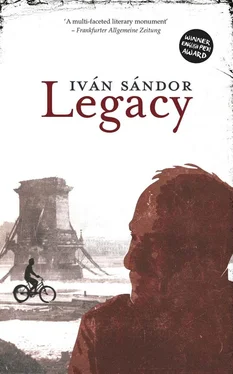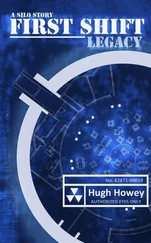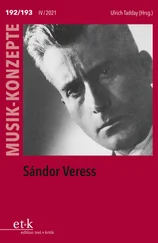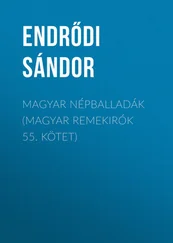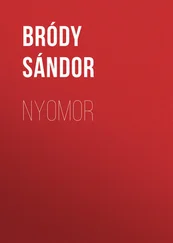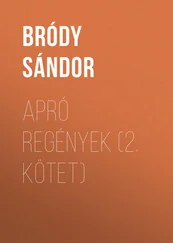Is this how it’s going to be every evening? Gertrud asks when they get back.
The telephone rings again one hour later. Gertrud picks up the receiver. Of course, I know her, she says in answer to the Gestapo major’s question, she is an esteemed friend of ours, to me personally, and a colleague of Herr Friedrich Born’s at the ICRC, who is charged with looking after sick children.
It was quite simple, says Gertrud to Lutz, I would quite fancy the Jewish woman myself if I were in your shoes, dearest.
That night Károly Beregfy, the Minister of Defence, issues a summons:
Anyone who is still sitting at home unarmed should come and fight! Enlist at the district branch of the Arrow Cross Party. Hungarian women, skivers must be held in contempt! Shame and a calling to account will be the fate of those who do not take part in the defence of our capital city!
The military high command adopted a plan drawn up by the joint Hungarian — German committee concerning the actions that are to be implemented in the event of a withdrawal from Budapest, which includes a list of factories, public buildings, railway intersections and bridges that are to be blown up. Sándor Csia, Szálasi’s deputy, opens the session with a quotation from the great Reformist Liberal Count István Széchenyi: ‘We are lost if we confer when the time has come for action.’
An announcement appears under the joint signatures of SS Obergruppenführer Karl Pfeffer-Wildenbruch, commander of the German force defending Budapest, and Colonel-General Iván Hindy de Kishind, holder of a hereditary knighthood of the Vitéz Order and at the time commander of Hungarian I Corps:
Joint German — Hungarian martial law is coming into force in the area of Greater Budapest. Capital punishment awaits all traitors who, by committing acts of sabotage and incitement, whether by word of mouth or written, or by actual sedition, endangers the lives of fighting forces.
A few days later Ferenc Szálasi proclaims that in the interests of the Great European Project he is willing to accede to the view that the German high command should not declare Budapest an open city. It is therefore necessary forthwith, and accepting all sacrifices, to make a start on organizing the defence of Budapest at all costs.
I don’t recall when Gizi next visited us in the Alice Weiss Hospital, says Mother, but we had certainly been there for several days. The only places for those who were brought back from Hegye shalom were on palliasses placed on the floor in the basement. Undoubtedly we asked her to look for Jolán Bors, you know, she was the one who …
I know, I interrupt. Mother has already told me many times over that she got Gizi to look for Jolán Bors, and I’ve already told her many times over that I remember Jolán Bors bringing a large bag of apples for us in the brickworks. We gave her address to Gizi, and Gizi found her. Jolán set about looking for you, she went first to Amerikai Road and only after that did she go over to the workshop.
I tell Mother yet again that we did not let anyone on Amerikai Road know that we were going to Francia Road. I don’t know why I repeat it so often. Maybe because I see in her face the joy it gives her to be able to say anew that Jolán Bors found us.
It would be nice to be able to ask Jolán Bors herself. She must have been around twenty-five years old then, so perhaps she is still alive. She used to live in the south-eastern suburbs, in Kispest, the XIXth District. She wore a headscarf. Oval face, big brown eyes, a basket invariably on her arm. A defrocked nun, says Father. Why, though? No one asks her. Bent over the gumming table, she spreads the paste with mechanical whisks of the gluing brush on the pre-cut paper of the bag, folds it, turns the half-finished bag and pastes its edges again, smoothes it down and stacks it in the pile beside her 25-year-old self.
Mother no longer seeks to evoke memories of her but what she herself said about her memories.
I listen to the story behind the words.
The Ukrainian third front had reached the town of Vác, north of Pest on the Danube. Units of the second and third fronts joined forces at Ercsi, just south of Budapest on the Buda side of the Danube: ‘The Hungarian theatre of war in a 150-mile arc is in flames,’ reports the war correspondent of the Völkische Beobachter from Budapest. ‘It is now not just a matter of the Hungarian capital city but also about how Vienna and south-eastern Germany may be defended at the cost of defending Budapest.’
When the ring of the siege tightens from the east to reach the districts of Újpest (IV), Sashalom (XVI), Rákospalota and Pestújhely (XV), Zugló (XIV) and Kispest (XIX), the Arrow Cross chiefs of staff ask General Otto Wöhler, leading the German 8th Army and the city’s new commanding officer, to guarantee the chance of breaking out for the garrison stranded in Budapest. There could be no question of this, however. An order has arrived from Hitler to say that the battle front must be maintained at all costs, declares the general.

Jolán Bors hurries through the streets of Kispest. Trams rarely run, and there is only room on the steps on to the carriages. She reaches Boráros Square on the southern Pest bank of the Danube then walks north to Rákóczi Avenue. There are long queues in front of the food shops; she joins one of them and buys two kilograms of apples. She clambers on to a number 44 tram. An air-raid warning is sounded; all traffic comes to a halt. Armed Arrow Crossers herd people into the public air-raid shelters on Baross Square. One hour later she resumes her journey towards Zugló on foot.
Vera is freezing cold. I am unable to persuade her to rub herself down with cold water from the tap at the back.
Mrs Ulbert arrives with Jolán Bors shortly behind. Her brown headscarf with the pink pattern is pulled right down to her eyes. Sweet Jesus! she cries, I don’t know whether out of happiness at finding us or from horror at the way we look. She puts the big bag of apples on the big trestle table. She gives both of us a smacker. Vera draws back not knowing who is giving the kiss.
Jolán Bors recounts what she has heard from Gizi. My parents are still alive. Only now does it occur to me to think for the first time what it would mean if they were not alive. Since our column set off from the brickworks and they disappeared in the fog on the highway it had never once struck me that I might not see them again.
Then we’ll go to where they are.
That’s not possible, she says. They only admitted those who were sick. There are five times as many people as there are places, and the Arrow Cross are taking away the walking wounded every day. The head physician, Dr Temesvái, has had the gates closed. Aunt Gizi says that you are to go to number 4 Munkácsy Mihály Street. There’s a Red Cross home there, and if you give them her name they will take you in for sure.
Vera asks, What has happened to my mummy?
I haven’t heard anything about her, says Jolán Bors.
She shows us where another trunk is hidden behind the bales of paper. I find a pair of warmer britches and thick socks. For Vera we search among Mother’s warm knickers: they are too big for her, but they don’t slip down if she puts on two pairs. She is most pleased by the ladies’ handkerchiefs.
You can’t stay, Mrs Ulbert says. Her husband is an army deserter, so for the night he went to his younger brother’s place in Pestújhely, but they’ll be out looking for him and will search the house, so you can’t stay.
I go into the office behind the partition wall and type a letter to my parents on the Remington. Jolán Bors says that when she next meets Aunt Gizi she will pass it on to her, but if they don’t meet up she’ll go to the Alice Weiss Hospital. The guards might let her hand in a letter.
Читать дальше
